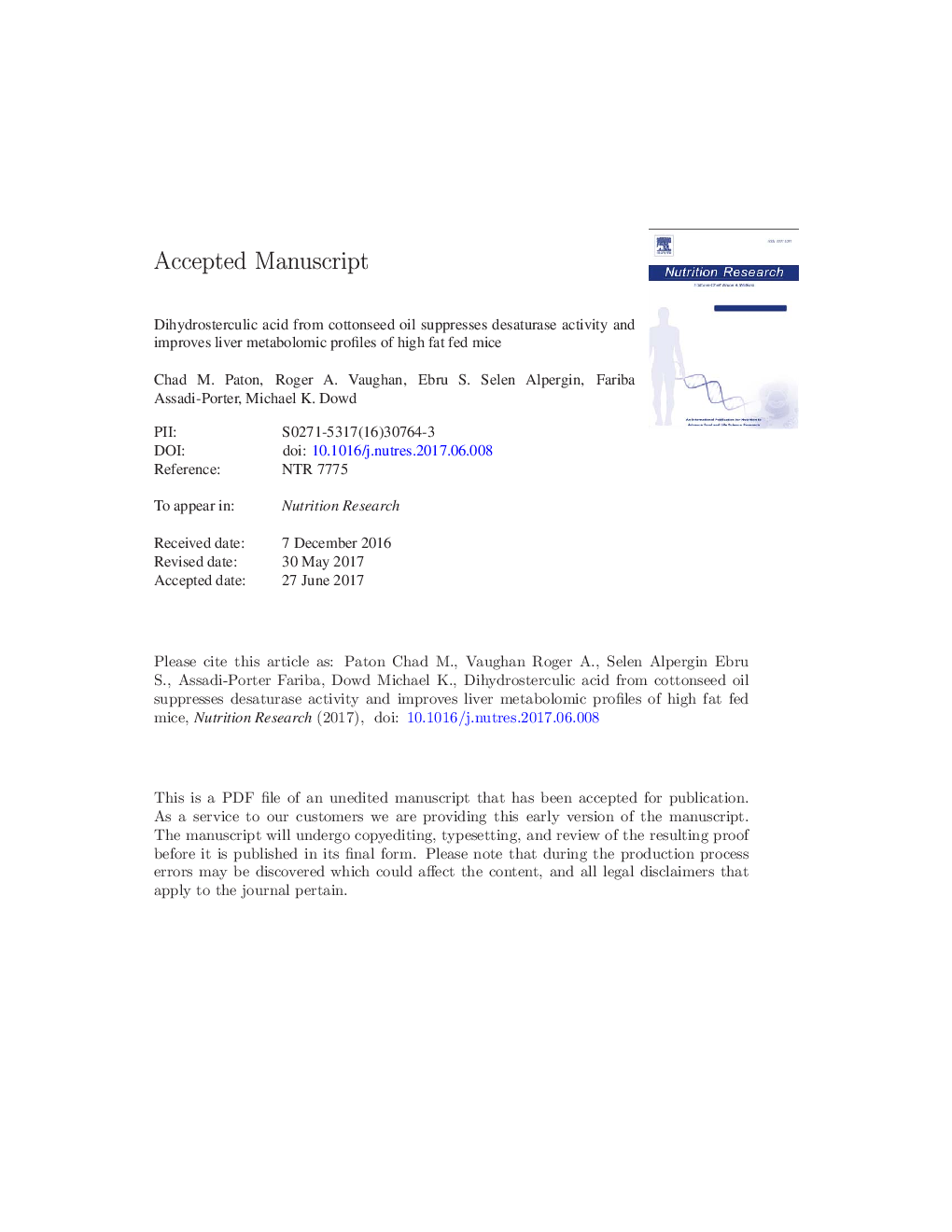| Article ID | Journal | Published Year | Pages | File Type |
|---|---|---|---|---|
| 5588618 | Nutrition Research | 2017 | 33 Pages |
Abstract
Polyunsaturated fatty acid (PUFA)-rich diets are thought to provide beneficial effects toward metabolic health in part through their bioactive properties. We hypothesized that increasing PUFA intake in mice would increase peroxisome proliferator activated receptor delta (PPARδ) expression and activity, and we sought to examine the effect of different PUFA-enriched oils on muscle PPARδ expression. One of the oils we tested was cottonseed oil (CSO) which is primarily linoleic acid (53%) and palmitic acid (24%). Mice fed a CSO-enriched diet (50% energy from fat) displayed no change in muscle PPARδ expression; however, in the liver, it was consistently elevated along with its transcriptional coactivator Pgc-1. Male mice were fed chow or CSO-, saturated fat (SFA)-, or linoleic acid (18:2)-enriched diets that were matched for macronutrient content for 4 weeks. There were no differences in food intake, body weight, fasting glucose, glucose tolerance, or energy expenditure between chow- and CSO-fed mice, whereas SFA-fed mice had increased fat mass and 18:2-fed mice were less glucose tolerant. Metabolomic analyses revealed that the livers of CSO-fed mice closely matched those of chow-fed but significantly differed from SFA- and 18:2-enriched groups. Fatty acid composition of the diets and livers revealed an impairment in desaturase activity and the presence of dihydrosterculic acid (DHSA) in the CSO-fed mice. The effect of DHSA on PPARδ and stearoyl-CoA desaturase-1 expression mimicked that of the CSO-fed mice. Taken together, these data suggest that DHSA from CSO may be an effective means to increase PPARδ expression with concomitant suppression of liver stearoyl-CoA desaturase-1 activity.
Keywords
NAFLDPPARδstearoyl-CoA desaturase-1SCD1RERTEEPPARαSFAFFAMUFACSOHFDGTTnuclear magnetic resonance18:2Linoleic acidFree fatty acidPolyunsaturated fatty acidmonounsaturated fatty acidPUFAFatty acid oxidationChoDesaturationNonalcoholic fatty liver diseasetriglycerideglucose tolerance testNMRintraperitonealCottonseed oilhigh-fat dietMass spectrometryNuclear magnetic resonance (NMR) spectroscopyBioactive lipidsMetabolomicsRespiratory exchange ratioPeroxisome proliferator activated receptor alphasaturated fatCarbohydrateGas chromatographyTotal Energy Expenditure
Related Topics
Life Sciences
Biochemistry, Genetics and Molecular Biology
Endocrinology
Authors
Chad M. Paton, Roger A. Vaughan, Ebru S. Selen Alpergin, Fariba Assadi-Porter, Michael K. Dowd,
